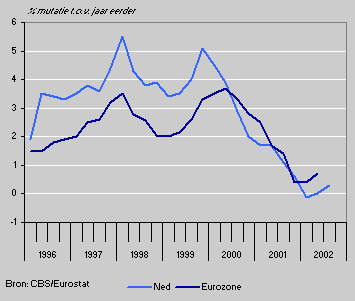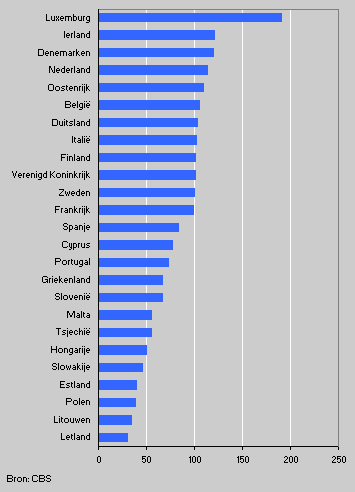Dutch economic growth lagging

The world-wide cooling down of the economy that became manifest in 2001 continued in 2002. With zero growth, the Dutch economy was clearly below the EU average of 0.6 percent, while throughout the nineties the Netherlands had above average growth.
Economic growth in the Netherlands

Unlike Europe, in the United States the economy has already started to recover again: following a marginal 0.3 percent increase in 2001, American economic growth was nearly two percent in 2002.
Inflation down slightly, unemployment up
In line with average inflation in the European Union, inflation in the Netherlands fell slightly in 2002, although it is still well above the EU average. Indeed the Netherlands has one of the highest rates of inflation in the EU. Japan is still having problems with deflation: consumer prices there fell by more than one percent in 2002.
Unemployment rose across the board, first and fastest in the United States. In the Netherlands unemployment is still very low at 2.6 percent, 5 percent points below the EU average.
EU candidate countries relatively poor
Ten new countries will be incorporated in the European Union if the enlargement goes ahead as planned in 2004. These ten, mostly former Eastern bloc countries, are relatively poor from an economic point of view. The level of prosperity in the three most important new members – Poland, the Czech Republic and Hungary – is about half the EU average.
GDP per capita, EU 15=100

The expansion from 15 to 25 countries will increase the population by just over 20 percent, to 460 million, while GDP will rise by only ten percent.
Hermanus Rietveld